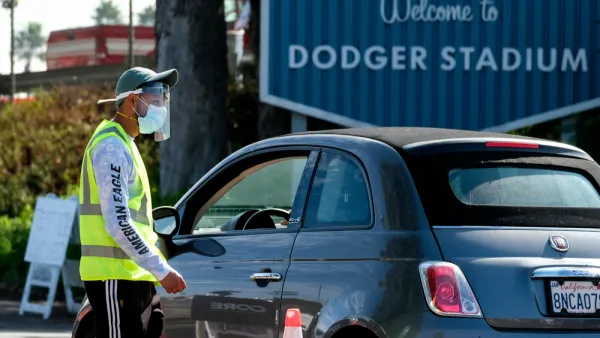Public health experts assert that to safely reopen the economy, the coronavirus needs to be contained. In Manhattan, where the virus is largely controlled, chain restaurants are closing while their sister stores in Florida are expanding.

Florida has the nation's second-highest COVID-19 case incidence rate, with daily new cases of 30.3 per 100,000 people on Aug. 13, according to Harvard's COVID-19 Risk Level Map (described here) based on a 7-day moving average. Only Georgia is higher, with 33.8 cases per 100k people.
New York State's case incidence is almost one-tenth the rate that of Florida: 3.2 per 100k people. In Manhattan, the incidence rate is 3.5 daily cases per 100k people. Only Maine, Vermont, New Hampshire and Connecticut, respectively, are lower. But from a business perspective for some restaurants, the virus level might as well be irrelevant.
"Michael Weinstein, the chief executive of Ark Restaurants, who owns Bryant Park Grill & Cafe and 19 other restaurants, said he will never open another restaurant in New York, report Matthew Haag and
Of Ark Restaurants’ five Manhattan restaurants, only two have reopened, while its properties in Florida — where the virus is far worse — have expanded outdoor seating with tents and tables into their parking lots, serving almost as many guests as they had indoors.
“There’s no reason to do business in New York,” Mr. Weinstein said. “I can do the same volume in Florida in the same square feet as I would have in New York, with my expenses being much less.
Indoor dining is still not allowed in Manhattan, even with its low case incidence level. Gov. Andrew Cuomo, unlike some of his counterparts in other states, is extremely cautious in reopening New York. The first of four criteria noted on the "Metrics to Guide Reopening New York" for any of the ten regions [pdf] to reopen is that "the infection rate is sufficiently low."
According to a recent New York Times opinion co-written by a public health expert and an investment banker, New York is still not ready to fully reopen.
"We believe the choice is clear" opine Michael T. Osterholm, director of the Center for Infectious Disease Research and Policy at the University of Minnesota, and
"We can continue to allow the coronavirus to spread rapidly throughout the country or we can commit to a more restrictive lockdown, state by state, for up to six weeks to crush the spread of the virus to less than one new case per 100,000 people per day."
Going by the Osterholm/Kashkari standard, only Maine, with 0.9 cases per 100k people, met that reopening metric on Aug. 13, 2020.
Related in Planetizen:
-
California Rolls Back, July 14, 2020
Hat tip to The New York Times Coronavirus Briefing.
FULL STORY: Retail Chains Abandon Manhattan: ‘It’s Unsustainable’

Analysis: Cybertruck Fatality Rate Far Exceeds That of Ford Pinto
The Tesla Cybertruck was recalled seven times last year.

National Parks Layoffs Will Cause Communities to Lose Billions
Thousands of essential park workers were laid off this week, just before the busy spring break season.

Retro-silient?: America’s First “Eco-burb,” The Woodlands Turns 50
A master-planned community north of Houston offers lessons on green infrastructure and resilient design, but falls short of its founder’s lofty affordability and walkability goals.

Test News Post 1
This is a summary

Analysis: Cybertruck Fatality Rate Far Exceeds That of Ford Pinto
The Tesla Cybertruck was recalled seven times last year.

Test News Headline 46
Test for the image on the front page.
Urban Design for Planners 1: Software Tools
This six-course series explores essential urban design concepts using open source software and equips planners with the tools they need to participate fully in the urban design process.
Planning for Universal Design
Learn the tools for implementing Universal Design in planning regulations.
EMC Planning Group, Inc.
Planetizen
Planetizen
Mpact (formerly Rail~Volution)
Great Falls Development Authority, Inc.
HUDs Office of Policy Development and Research
NYU Wagner Graduate School of Public Service




























